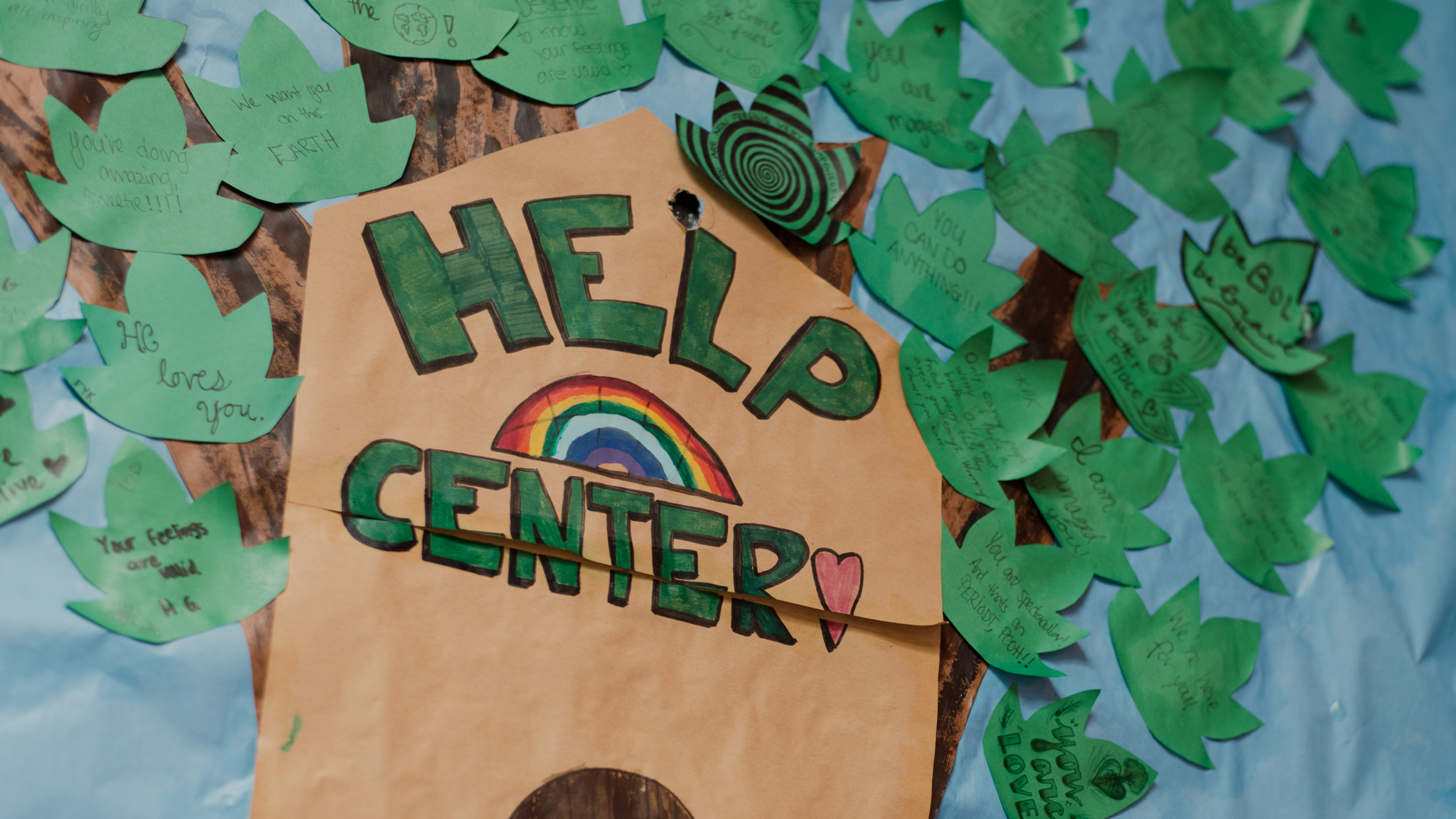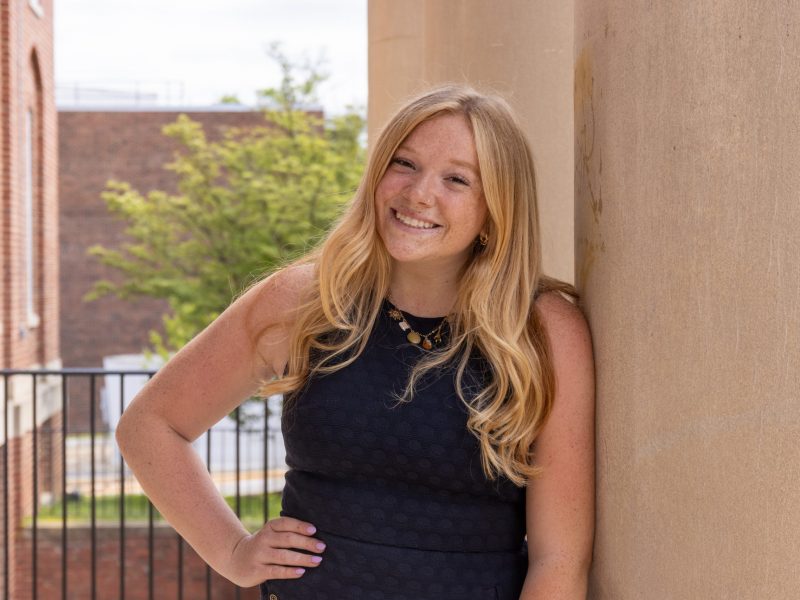It’s been easy for Hannah Robinson to feel helpless during the coronavirus pandemic.
Like many University of Maryland students, Robinson has faced unexpected challenges over the past year — her study abroad experience was canceled, she had to adjust to a virtual education and she’s graduating into a job market with high unemployment.
Even still, Robinson has been able to find a sense of comfort, community and light in volunteering at the Help Center, the student-run peer counseling and crisis intervention service at this university.
“The world feels really bad a lot of the time, and it can be easy for me to feel helpless, and being a part of Help Center is one thing that I can do consistently,” the senior American studies major said. “It’s just one thing you can do to help.”
The Help Center is an anonymous call service where students who need mental health care can call to receive peer counseling from a student volunteer. And for the volunteers, the experience has given them an opportunity to help students who, like the volunteers themselves, may be struggling during this unprecedented year.
The center paused its operations last spring as the center’s leadership and the university determined how to safely continue their services, before relaunching in the fall.
According to a survey conducted by this university in the fall, 82 percent of undergraduate students said the pandemic had negatively impacted their mental health. Additionally, approximately a third of undergraduate students said in the survey that the pandemic impacted their access to mental health care.
[UMD Counseling Center director details proposal to make mental health care more accessible]
Micah Herman, the center’s president, said the work has been “so concretely rewarding and so grounding” during the pandemic.
“It helps all of us to feel really connected to our campus community,” said Herman, a senior English and psychology major. “While everyone’s collectively going through this difficult time, we’re able to provide support to them for free and anonymously. It’s been so, so rewarding.”
The pandemic hasn’t caused the Help Center to lose that sense of community. In fact, it’s emphasized the importance of providing empathy, compassion and kindness to everyone, said M Pease, the center’s workshop director.
“The community is really lovely,” said Pease, a senior psychology major. “Given the fact that it’s a community centered around helping other people and having empathy and those sorts of characteristics, I believe that that lends itself to being a relatively tight sort of community.”
The pandemic has also allowed the Help Center to improve its relationship with the campus community. In the fall, the center began the Empathy Speakers’ Bureau, which Pease runs.
The bureau supports campus organizations by teaching them about how to help others and be empathetic so the campus community can better understand mental health and conflict management, Pease said.
The bureau’s lessons are “becoming more and more salient as we go through an emergency or sort of collective trauma,” Pease said.
[After Atlanta shooting, UMD students hold vigil to heal and confront anti-Asian hate]
Some of the center’s values — empathy, care and kindness — are Robinson’s biggest takeaways from being a volunteer.
After transferring to this university as a sophomore, Robinson said she “felt kind of lost.” Joining the center allowed her to find her place on the campus, she said.
“The Help Center acts like this microcosm of people who are really kind and supportive,” Robinson said. “It really shows that if so many other people in the world had the skills to be able to support each other and be empathetic … other communities could also be so empathetic.”
Herman emphasized that the center’s main focus is to support students, no matter the challenges they may be facing.
“It’s such a shared experience — struggling with COVID and all of its implications — for us as college students. So I think for students, hypothetically, calling about those issues, we can really relate to them and know what they’re going through,” Herman said. “It’s OK if they’re not feeling OK … And there’s always someone to provide a listening and supportive ear.”



